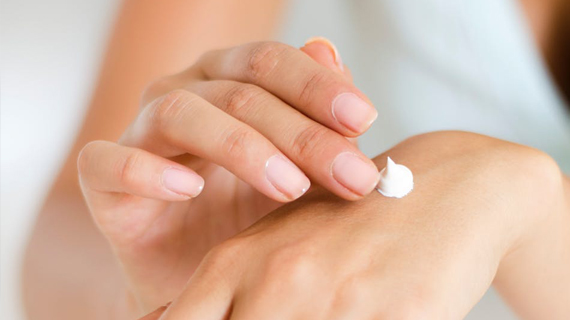People with eczema should take special care with the items that come into direct contact with their skin. In addition to the fabrics themselves, the products you use to care for them can potentially cause a reaction with your skin. Dyes, perfumes, fragrances, and detergents that are left on the fabric after washing and drying may irritate sensitive skin, so avoid them.
What to look for in laundry care products
For most people fragrances (perfumes), dyes, and detergents are what cause skin reactions. For some people, almost any brand of detergent that is free of dyes and fragrances will be satisfactory as long as the laundry is rinsed adequately. Some people have additional allergies, which can make even a detergent without dyes and perfumes problematic. It may take some trial and error to find a detergent that works for you.
-
- Choose products (from detergents to fabric softeners) that are hypoallergenic, free of dyes and fragrances, and formulated for sensitive skin.
- Try liquid products, as they tend to leave fewer residues than powders.
- Consider using a liquid fabric softener. Studies have shown that clothes treated with fabric softener have a potential benefit for people with sensitive skin.
- Use your washing machine’s second or “extra rinse” setting if it has one.
- Check the NEA website for laundry products that have been awarded the NEA Seal of Acceptance
Wash new fabrics before first use
New clothing can sometimes have a finish on it to make it more appealing at the store.
-
- Wash new clothing, bedding, and cloth napkins before you use them.
- Wash everything your baby comes into contact with (plush toys, bedding, blankets, parent and caregiver clothes, towels) before being used for the first time.
- Consider washing the clothes, bedding, and towels of the person with sensitive skin separately.
Laundry room safety
If you have children, pay special attention to how you use and store laundry care products.
-
- Keep laundry products in their original containers with the original label intact.
- Place products in a secure location after use, out of the reach of children and pets. Consider storing them in a high, locked cabinet. Do not store products on top of the washer or dryer.
- Keep single-use detergent laundry packets away from children. These packs are very concentrated and should never be handled or played with by children. The packs dissolve quickly when in contact with water, wet hands, or saliva.
- Throw away empty product containers properly. Do not reuse detergent buckets or bottles for other uses.
- Clean up any spills, and immediately wash your hands and any items you use to pour or measure products.
- Close and lock the laundry room door when you are finished, so curious young children cannot get in.
- Pay special attention to spray bottles. They are a common source of exposure to cleaning solutions and should be kept out of a child’s reach.
Laundry Room Safety information reproduced with permission from the American Academy of Pediatrics and healthychildren.org



